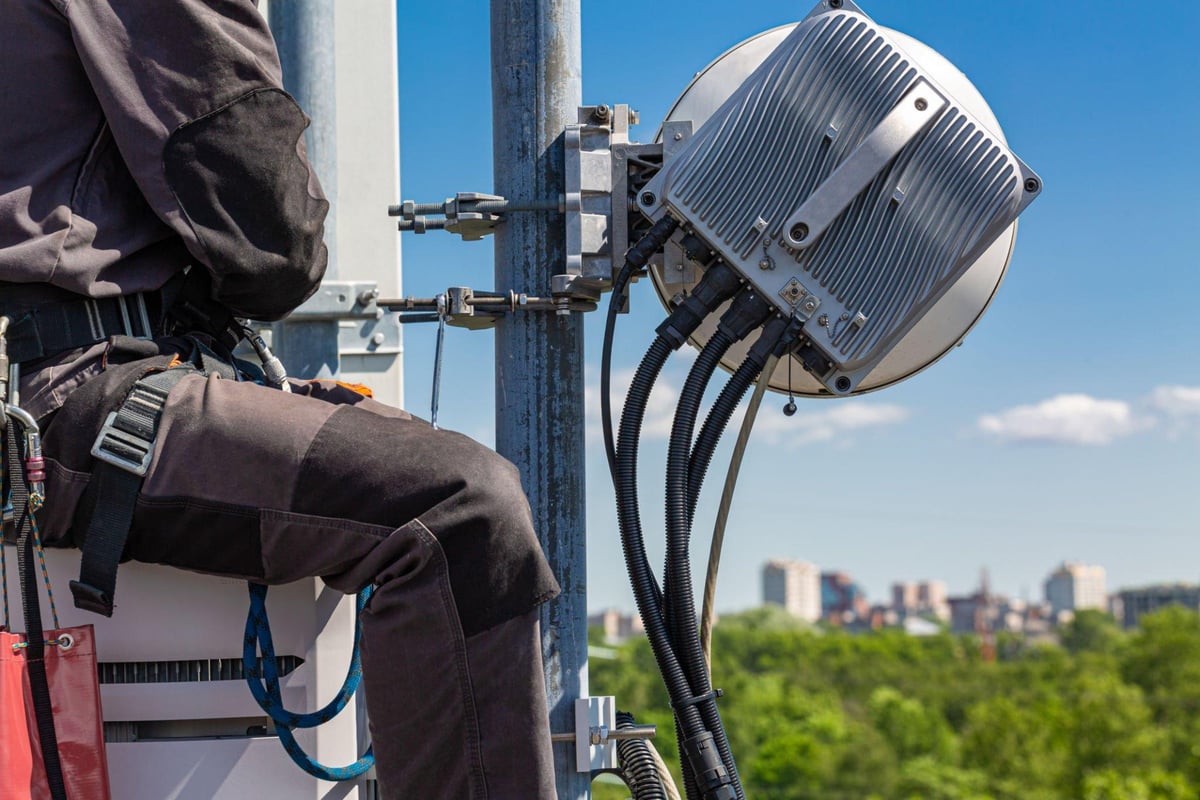
No cost info

Financial aid (may be available)

Financial aid (may be available)

Financial aid (may be available)
If you're interested in a thriving career in the telecommunications industry, becoming a Tower Technician might be the perfect path for you. With the rapid growth of technology and increased demand for wireless communication, Tower Technicians play a crucial role in maintaining, repairing, and installing cell tower equipment. In this blog post, we explore how you can become a Tower Technician, what to consider when choosing a training program, and how to pursue related jobs and further education in Milwaukee.

A Tower Technician, also known as a Tower Climber, is a professional who works on cellular towers to ensure they function correctly. They install, maintain, and repair the equipment that allows wireless communication. Their duties often involve climbing towers, inspecting and replacing faulty equipment, and ensuring proper signals. It's a job that requires physical strength, technical skills, and a great deal of safety awareness.
To become a Tower Technician, specific training is required. The exact requirements can vary, but generally include:
High School Diploma or GED: This is typically the minimum educational requirement for prospective Tower Technicians.
Technical Training: Many employers prefer or require that Tower Technicians have formal training in wireless technology, electrical systems, or a related field. This training can be obtained through vocational schools or community colleges.
Safety Training: Due to the nature of the work, Tower Technicians must complete safety training, often including First Aid and CPR, fall protection, rescue training, and RF awareness.
While the specific requirements can vary, all Tower Technicians need a combination of education, technical training, and safety awareness to succeed in the field.
Finding the right training program is crucial for success as a Tower Technician. Here are some factors to consider:
Accreditation: An accredited program has been reviewed and approved by a recognized accrediting body. This ensures that the program meets certain standards of quality and rigor.
Course Content: Look for a program that covers the key areas of Tower Technician work, including wireless technology, electrical systems, and safety training.
Hands-on Training: Practical, hands-on training is essential for Tower Technicians. Look for programs that offer lab work or field experience.
In a Tower Technician training program, you can expect a mix of classroom instruction and hands-on training. Classroom instruction often covers theory and technical knowledge, while hands-on training allows you to apply what you've learned in a practical setting. You may work on mock towers, practice safety procedures, and learn to use the tools and equipment used in the field.
After completing your training, the next step is certification. While not always required, certification can enhance your employability and demonstrate your competence in the field. The most common certification for Tower Technicians is the Tower Climbing Safety and Rescue Certification, which covers essential safety skills and procedures.
Once you're trained and certified, you can begin looking for jobs in the field. Many Tower Technicians find work with telecommunications companies, while others may work for contractors or consulting firms. Networking, leveraging job boards, and using resources like the Wisconsin job posts on Dreambound.com can help you find job opportunities.
After becoming a Tower Technician, you may choose to further your education to expand your career opportunities. Some potential classes could include:
Advanced Wireless Technology: These classes can deepen your understanding of wireless technology, which can open doors to more advanced positions.
Management and Leadership Training: If you're interested in moving into a supervisory role, management and leadership training can be beneficial.
Specialized Safety Training: Additional safety certifications, such as the Advanced Rigging Principles Training, can boost your skills and employability.
In a fast-paced field like telecommunications, continuous learning is key. Staying up-to-date on the latest technologies, safety procedures, and industry trends can help you stay competitive and excel in your career.
With experience and additional training, Tower Technicians can progress in their careers. They might move into supervisory or management roles, or they may choose to specialize in a particular area of tower work, such as inspections or repairs.
Networking can be a powerful tool for career advancement. Building relationships with other professionals in your field can open up opportunities for mentorship, job opportunities, and professional development.
Becoming a Tower Technician can be a rewarding path for those interested in telecommunications and hands-on work. With the right training and a commitment to continuous learning, you can build a successful career in this growing field. Whether you're just starting out or looking to advance in your career, resources like Dreambound can help you find the training programs and job opportunities you need. Remember, becoming a Tower Technician is not just about finding a job - it's about building a career. With the right training, experience, and dedication, you can reach new heights in the telecommunications industry.
Dreambound has written many guides to help you understand what it takes to get this certification. If you're curious about the process or requirements in other states, check out our other guides below:
Are you exploring diverse professional opportunities? Take a closer look at these resources that Dreambound has written to help in your search.
Dreambound's platform allows prospective students to find the right educational program for them through searching, filtering, and connecting with our extensive selection of career & technical education partners.
Dreambound has over 70 programs across healthcare, technology, business, and industrial trades. This includes programs such as Medical Billing, Cybersecurity, and welding.
Some of our schools offer financial aid for those who qualify. Many others offer payment plans, where you can pay the cost of class over time.
Yes, Dreambound offers many online programs. On Dreambound's search, you can filter by online, in-person, and hybrid (part online, part in-person).
Dreambound is completely free for you to use! We are supported by schools and organizations who pay to advertise on our website, so we can offer all of our career resources for free.